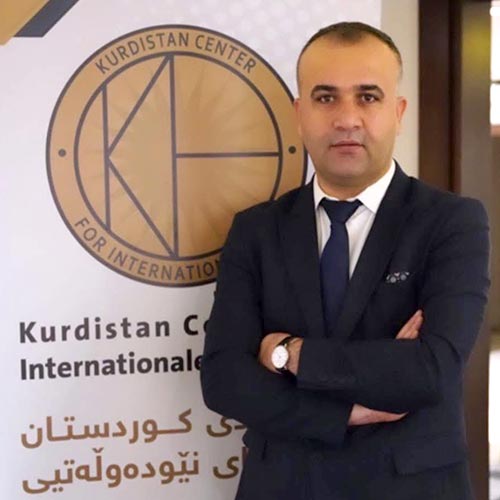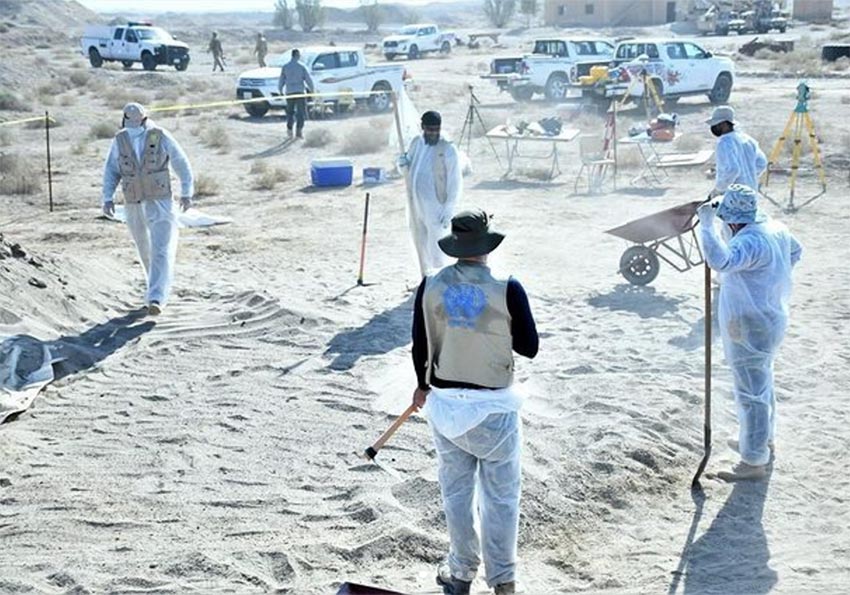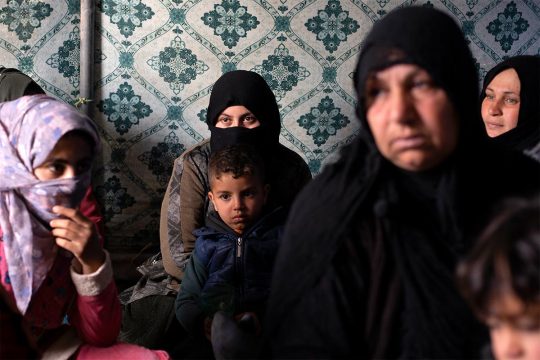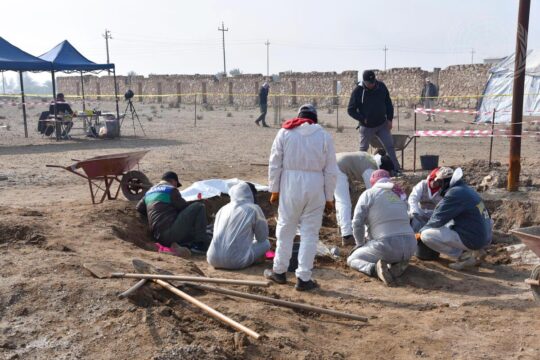The Islamic State in Iraq and Syria (ISIS) emerged in June 2014 from the ashes of unsolved political, religious and sectarian conflicts in the Middle East, conflicts which motivated many extremists around the globe to join their actions, notably by using their self-interpretation of Quran. It began by invading considerable territories in Iraq and Syria and was singled out by human rights organisations as a group which was committing most international crimes, including the crime of genocide against Yazidi community, war crimes, crimes against humanity, including sexual and gender-based violence, abduction, extrajudicial killings, torture, recruitment of children, attacks against religious and ethnic groups, and displacing civilian people.
In response, an international military coalition was formed in September 2014, and three years later, in 2017, in response to a request by Iraq, the United Nations security council adopted a resolution which created the United Nations Investigative Team to Promote Accountability for Crimes Committed by Daesh (UNITAD). Its mandate was “to support domestic efforts to hold ISIS (Daesh) accountable by collecting, preserving and storing evidence in Iraq of acts that might amount to war crimes, crimes against humanity and genocide”.
Insufficient accountability of ISIS core crimes
UNITAD operated for seven years with an annual budget of 22 million US dollars. During that time, UNITAD focused primarily on gathering evidence of ISIS crimes, and published 12 lengthy reports during its operation. But although it was also part of his mandate, UNITAD has not been able to develop a comprehensive mechanism to use its evidence within the judicial systems of Iraq and of the Kurdistan region of Iraq (KRI), as well as in third countries.
In the meantime, courts in Iraq and the KRI prosecuted tens of thousands of ISIS fighters without using any UNITAD evidence, mostly on anti-terrorism laws, according to a research conducted in 2022 by the Kurdistan Center for International Law (KCIL). In 2020, there were 1,190 cases in the Committee of felony of the Kurdistan court of cassation: 521 of those cases were related to the anti-terrorism law, equivalent to 44 per cent of all criminal cases in 2020. The year after, anti-terrorism related cases accounted for 410 out of 1,430 criminal cases. The situation was the same in the Juvenile Committee of the Kurdistan court of Cassation, where the number of cases related to the anti-terrorism law is considerable. There have been some reports that during the trial process, even the minimum human rights standards have been violated.
Death penalty, which is against UN standards, is allegedly the main reason why UNITAD didn’t cooperate with local courts. UNITAD could have worked in coordination with organizations and Iraq authorities to abolish the death penalty, so that all the evidence could be used in domestic courts in Iraq and the KRI and the standards of procedure could be improved. But it didn’t, and at the end of its mandate, UNITAD only contributed to 15 indictments.
Besides its endeavours for accountability, UNITAD worked on excavating mass graves, which resulted in the excavation of 68 mass graves and the recovery of more than 900 victims. It also developed resources to support trauma survivors in the aftermath of mass atrocities, wars and violence. While the topic of funding and terrorism fell outside the direct scope of its mandate, UNITAD shared relevant documentation with Iraq and other concerned states in relation with aiding ISIS.
Failure to establish a special court for ISIS crimes
At this stage, perspectives for adequate accountability were arguably scarce. In 2021, the Kurdistan region of Iraq launched an initiative for the establishment of a special court for ISIS crimes, adopting the draft law of the intended special court. With some modifications, it had borrowed from the Iraqi High Tribunal, which was established to prosecute the former Iraqi regime for crimes of genocide, war crimes and crimes against humanity.
As the Kurdistan parliament started its consultations with its stakeholders, in May 2021 the Iraqi ministry of foreign affairs instructed the Iraqi federal supreme court to evaluate the constitutionality of the draft law, considering that the intended special court may appoint non-Iraqi judges and prosecutors, may issue verdicts including death penalty and might have jurisdiction over Iraqi and non-Iraqi citizens. After reviewing the draft law, Iraq’s supreme court decided that the KRI move to establish such a special court for ISIS crimes was unconstitutional. Within all these processes, UNITAD could, but did not, play a significant role for the establishment a special court for ISIS crimes.
UNITAD’s zero legacy
After the Iraqi federal court's decision, and the conclusion of the mandate of UNITAD on 17 September 2024, the prosecution of ISIS core international crimes faced a dilemma. Iraqi civil society organizations are both demanding accountability for ISIS crimes and reparations for victims, and that the evidence that has been gathered by UNITAD would go to their intended use. They also support calls for justice and reparations, both in Iraq and the KRI. They are implementing a comprehensive project for finding legal bases for domesticating international criminal law, by exploring the main issues of this process, such as constitutional barriers.
According to a KCIL research, this legislative process goes beyond ratifying international conventions since Iraq is a dualist state and requires domestic legislation to be enacted. Iraq has ratified various multilateral conventions, such as the Geneva Conventions and the Genocide Convention, but Iraq (including the KRI) has nonetheless failed to enact the required domestic laws to deal with these crimes. The KCIL has drafted a law for criminalizing core international crimes within the KRI criminal justice system. Efforts are still ongoing but without the backing of the international mechanism that was supposed to undertake the task.

Co-founder and executive director of the Kurdistan Center for International Law (KCIL), Hawre Ahmad is leading a project for criminalizing core international crimes in the Kurdistan region of Iraq. He has published articles on the Yazidi genocide, war crimes and crimes against humanity in Iraq, and a book on genocide in international law and tribunals in Kurdish language. He has also co-written a study on limitations and obstacles which hinder Kurdistan's judicial system.







